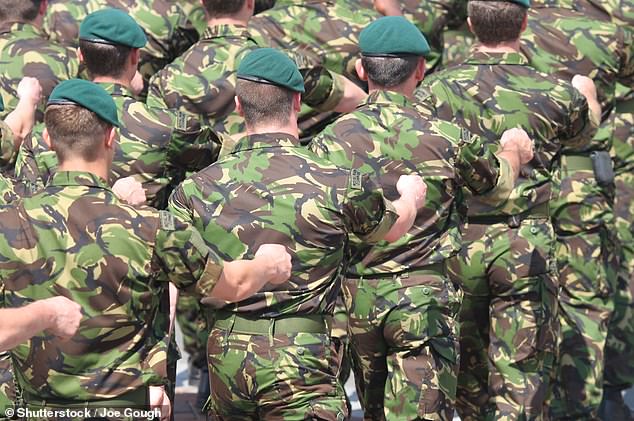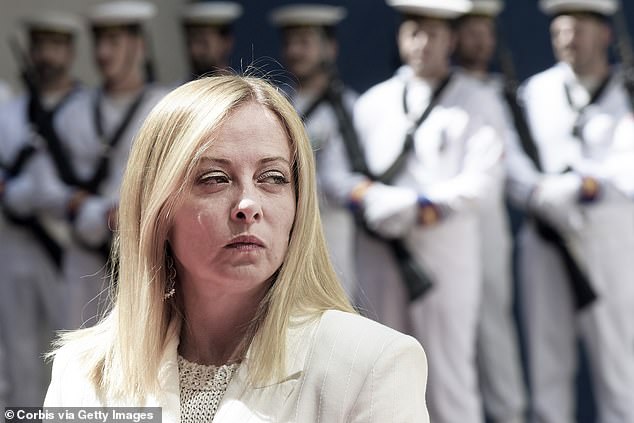Less than a fifth of Italians would fight for their country, a survey suggests.
It showed almost a third of Italians believe the country will be directly involved in a war within five years, but only 16 per cent of those of fighting age would be willing to take up arms.
Italy has joined other NATO nations in pledging to ramp up national defence spending after years of escalating geopolitical tensions in Ukraine and the Middle East.
But that has not translated to a fresh desire to join the military.
The survey by the Centre for Social Investment Studies (CENSIS) showed 39 per cent of Italians aged between 18 and 45 would declare themselves as pacifist conscientious objectors.
Another 19 per cent would try to evade conscription another way, and 26 per cent would prefer Italy to hire foreign mercenaries.
A separate poll of Brits in May found that just 35 per cent – roughly one in three – said they would be ready to fight.
Italy is one of NATO’s lowest military spenders, targeting only 1.49 per cent of its gross domestic product for its military last year – well below the latest pledge of 5 per cent.

Less than a fifth of Italians would fight for their country, a survey suggests

The survey by the Centre for Social Investment Studies (CENSIS) showed 39 per cent of Italians aged between 18 and 45 would declare themselves as pacifist conscientious objectors
The increase in spending was agreed at the Nato summit in June.
Spanish premier Pedro Sanchez was the only leader to refuse to agree to a new target of spending 5 per cent of GDP on defence and security by 2035. All of Nato’s 31 other leaders signed up to the target, a long-held demand of Mr Trump.
Mr Trump has previously suggested he could quit the alliance because of the vast sums America pours into it compared to other countries.
In February last year, before being elected President for a second time, he even suggested he would ‘encourage’ Russia to attack any Nato member that fails to pay its way.
Italy has also refused to participate in Donald Trump’s plan to send US-made weapons to bolster Ukraine’s defences.
Governments across Europe are pondering whether to take part in the $10 billion initiative, which will involve the continent buying ‘top of the range’ weapons – including Patriot air defence systems – from Washington before giving them to Kyiv.
The Italian government has stated that it will not purchase weapons but may assist with transporting them to Ukraine, according to local media.
However, most Italians remain sceptical of rearmament. Just 26 per cent believe that military deterrence is a good way to ensure peace, while only 25 per cent support increased military budgets even if it means cutting welfare.
A mere 11 per cent would like the country to have nuclear weapons.
Despite a 46 per cent rise in defence spending over the past decade, per capita expenditure in Italy remains comparatively low at 586 dollars, the survey said.
That compares with 686 dollars in Greece and over 2,000 dollars in countries such as the United States or Norway.
To ensure Italy’s security, 49 per cent of all Italians are in favour of strengthening NATO, while 58 per cent would like to see an integrated European Union defence system, with a single army, under a unified command and joint weapons procurement.
Last month, Italy said it would count the £11 billion cost of a bridge to Sicily as defence spending to meet NATO’s 5 per cent of GDP military expenditure target.
The prime minister Giorgia Meloni is in the process of rebadging the ailing project to build a crossing over the Strait of Messina as a strategic decision vital for the Western alliance’s presence in the Mediterranean.

Italian prime minister Giorgia Meloni said it would count a £11 billion cost of a bridge to Sicily as defence spending to meet NATO’s 5 per cent of GDP military expenditure target
By listing the crossing as a military asset, it can be counted towards the new NATO goal, which demands fresh expenditure for almost every nation on defence-related infrastructure.
The move mirrors efforts by Sir Keir Starmer to boost Britain’s defence spending by reclassifying swathes of infrastructure projects as vital to national security.
The Prime Minister is planning to use government expenditure on rural broadband and the expansion of Heathrow airport to meet NATO’s goal of spending 1.5 percent of GDP on defence-related infrastructure.
Another poll published last month by the European Council of Foreign Relations, showed that only 17 per cent of Italians support increasing defence spending, the lowest proportion among 12 European countries surveyed.












